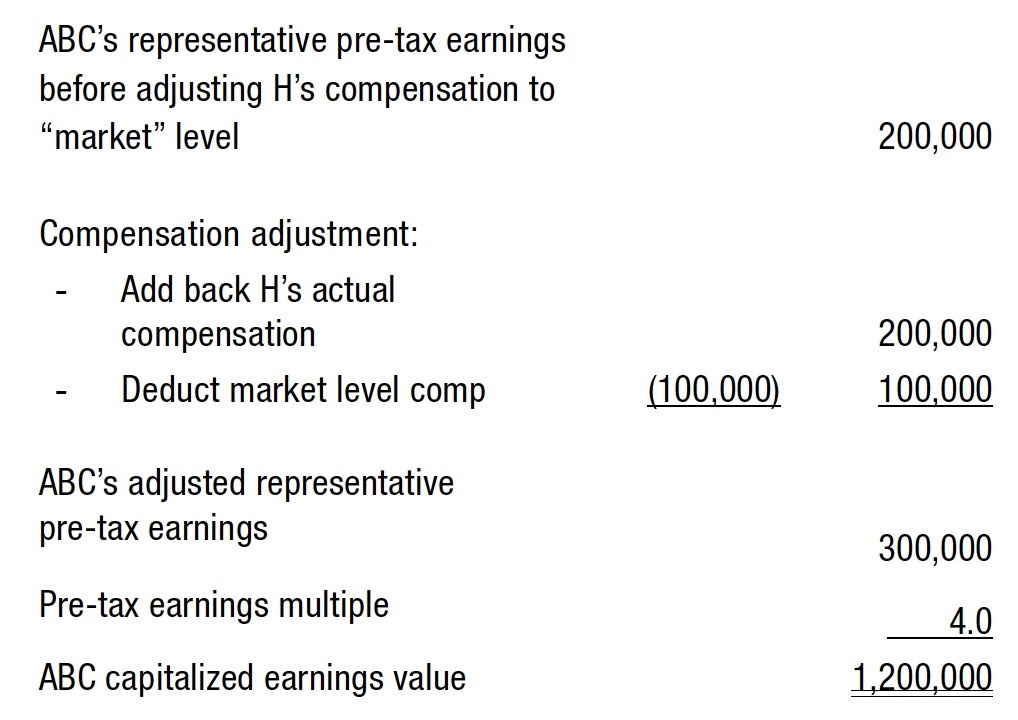View / Download April 2021 Article – PDF File
Tax Trends and Developments Column – Michigan Family Law Journal
Facts
- H, an orthopedic surgeon, had operated his practice out of a building he leased for most of the marriage. He had many employees.
- But, in 2016, he sold his equipment to a hospital at which he began working on a contractual basis. He retained one employee, his secretary.
- At the trial, H said the change was prompted by billing and insurance company issues.
- H said his practice had no value because he was essentially an employee of the hospital, and, further, that he owned no equipment and had no accounts receivable.
- He also said that he was easily replaceable and could not assign or sell his contractual position.
- W’s valuation expert valued H’s practice at $600,000. However, he admitted that he did not have complete information based on which to calculate a value and testified that the $600,000 was in considerable part his “extrapolation.”
- Further, the expert acknowledged that H was, as he claimed, essentially an employee of the hospital.
- The trial court ruled that H was an independent contractor with the hospital and no longer operated a practice.
Hence, there was nothing to value. - W appealed.
Court of Appeals Decision
- The Court upheld the trial court’s ruling.
- In doing so, the Court noted the concessions that W’s expert made noted above and stated “the evidence supported the trial court’s decision.”
Comments on the Case
- As was noted in the case, there is a trend in the medical practice arena for doctors to form contractual relationships with a hospital instead of operating an independent practice.
- Many groups of doctors have done this. It is often mutually beneficial in that:
- The hospital has the certainty of access to the doctors’ medical services and has control over the cost thereof.
- The doctors, in addition to significant relief from administrative matters now performed by the hospital, have a steady source of need for their services.
- However, it can be a blurry line between a “practice” as such and being essentially “an employee of hospital.”
- For example:
- Assume a medical practice group consists of four doctors who make, on average, $400,000 each annually.
- Depending on the nature of the practice, there may be a holder’s interest value to each doctor’s practice within the group.
- For the most part, albeit, not exclusively, the group of doctors performs services for patients of one hospital.
- The group and the hospital agree to enter a contractual arrangement which, essentially, formalizes the mode in which they had been operating.
- The agreement provides that the doctors will each make $350,000 annually while being relieved of various administrative responsibilities.
- So, from a de facto standpoint, are the doctors essentially in a very similar economic position as before entering the agreement with the hospital? Or, perhaps, a better position? If there was a holder’s interest value to their practice, has it disappeared?
- Some relevant questions to consider in similar situations, under subject agreement, are:
- Are the doctors in fact employees of the hospital or have they retained independent contractor status?
- Are the doctors restricted from performing services for non-hospital patients?
- To what degree are the doctors at the “beck and call” of the hospital?
- Are the doctors on fixed salaries or is their compensation tied to the amount of services they provide?
- To what degree does the hospital control the doctors’ schedules?
- As with so many issues in divorce, the “practice” issue in circumstances where there is a contractual relationship with a medical institution is fact specific.
About the Author
Joe Cunningham has over 25 years of experience specializing in financial and tax aspects of divorce, including business valuation, valuing and dividing retirement benefits, and developing settlement proposals. He has lectured extensively for ICLE, the Family Law Section, and the MACPA. Joe is also the author of numerous journal articles and chapters in family law treatises. His office is in Troy, though his practice is statewide.
View / Download April 2021 Article – PDF File
Complete Michigan Family Law Journal available at: Michigan Bar website – Family Law Section (subscription required)


